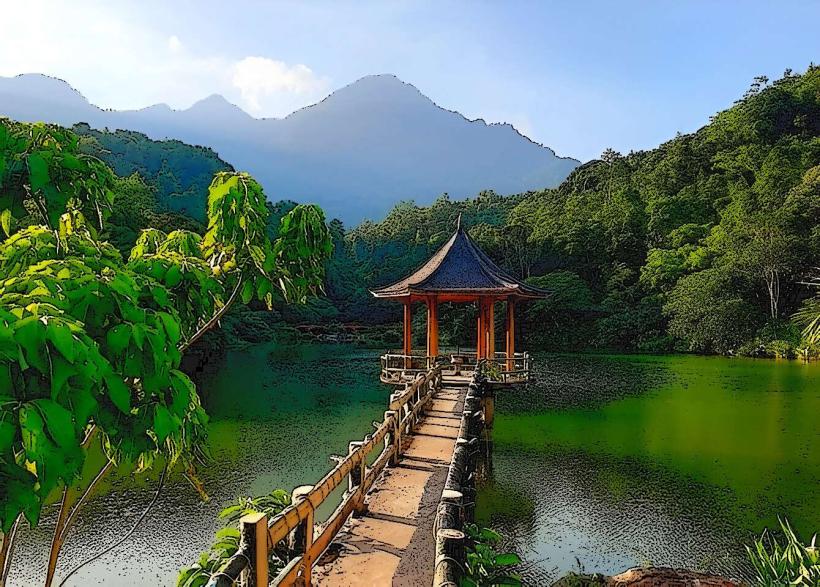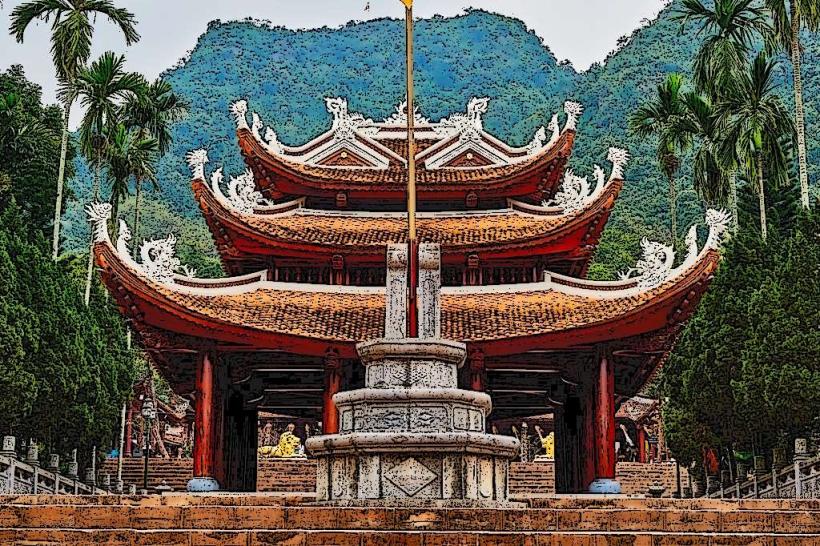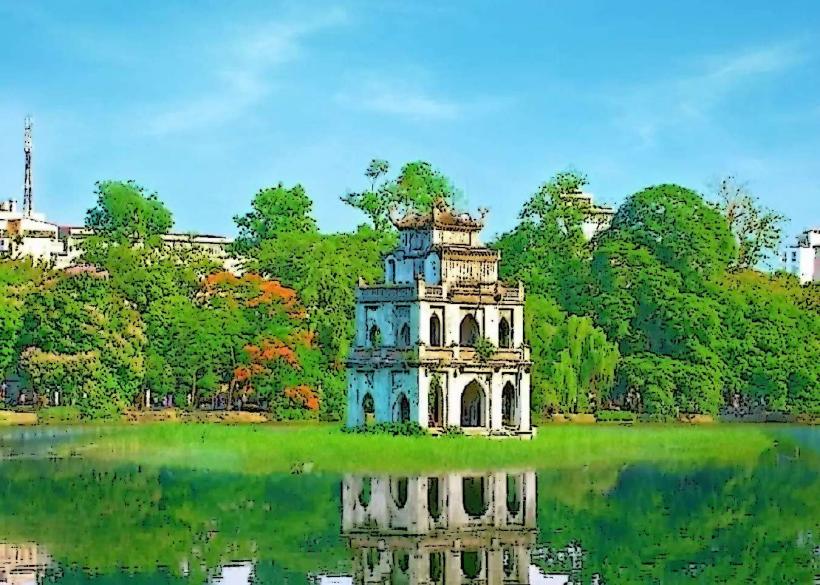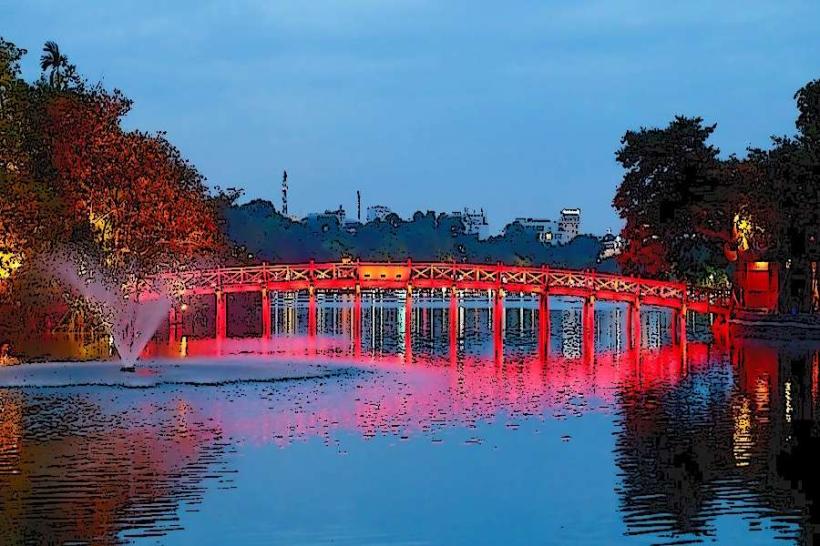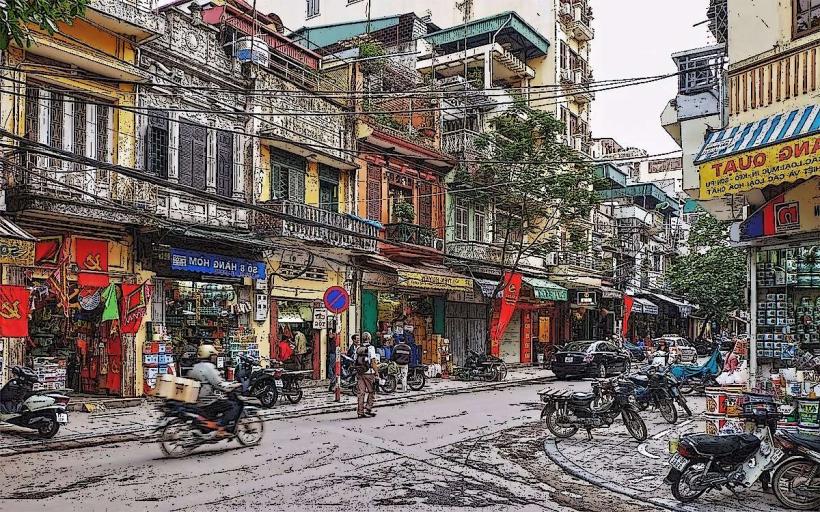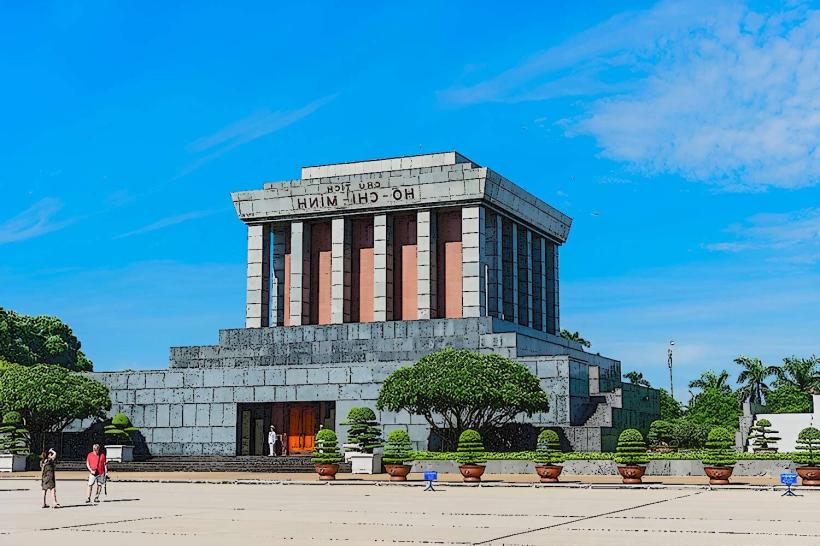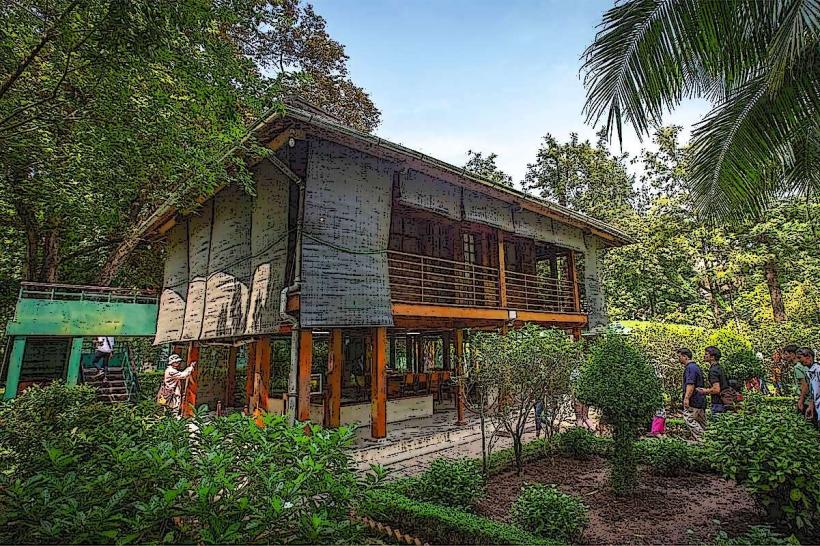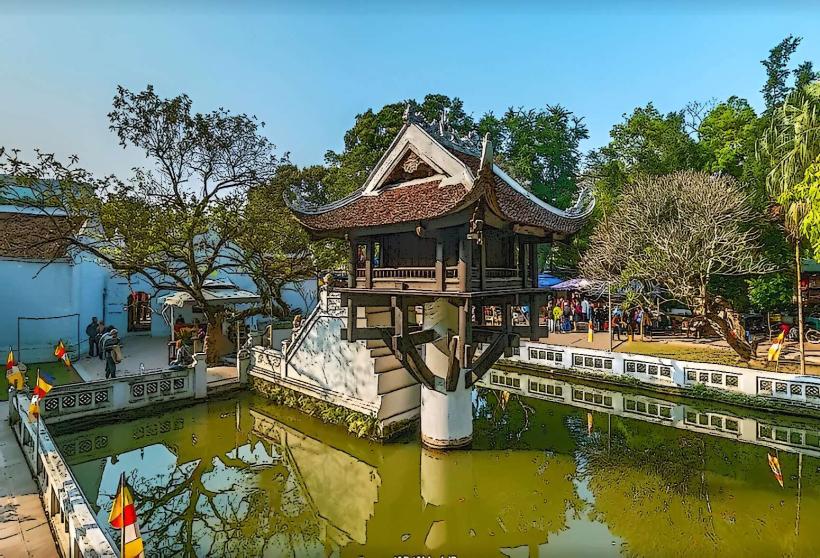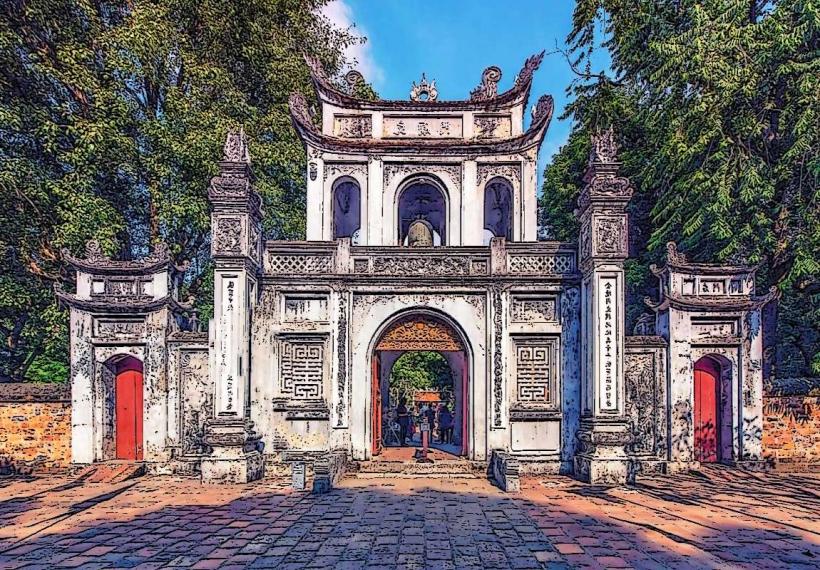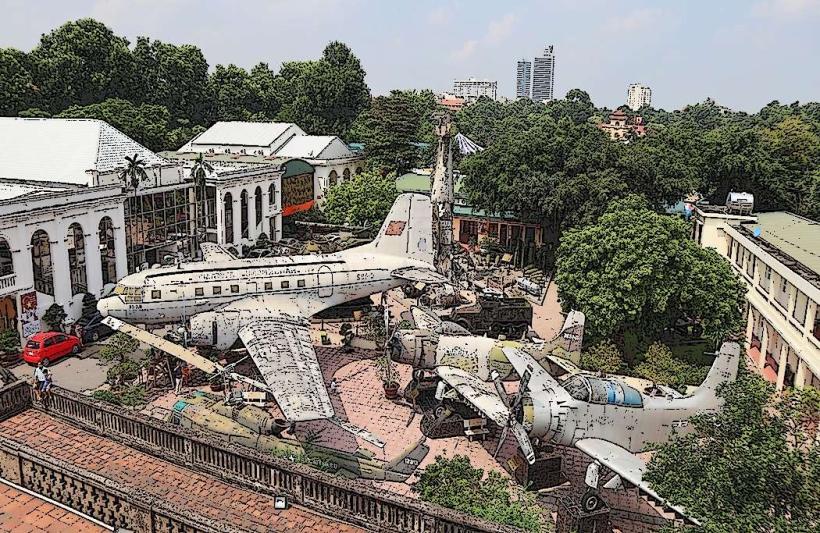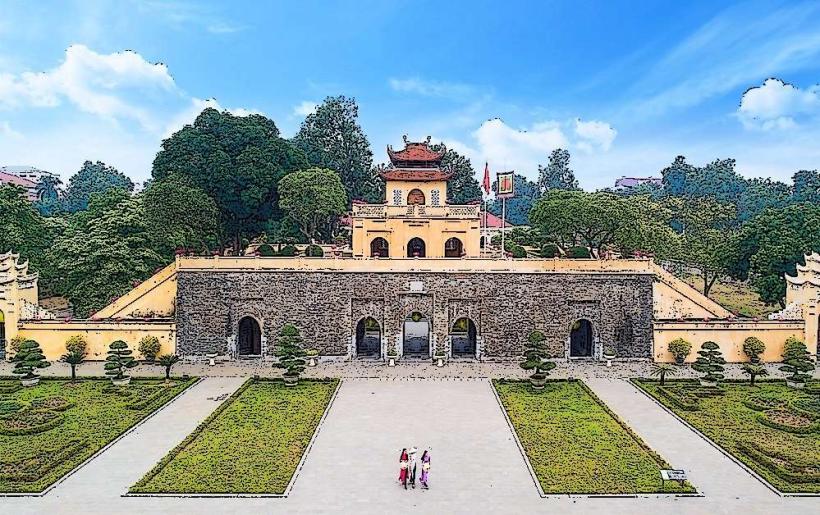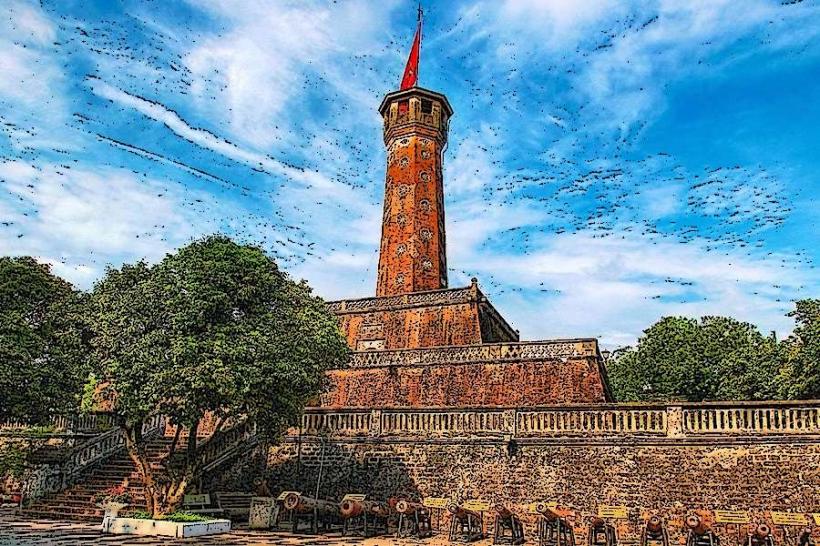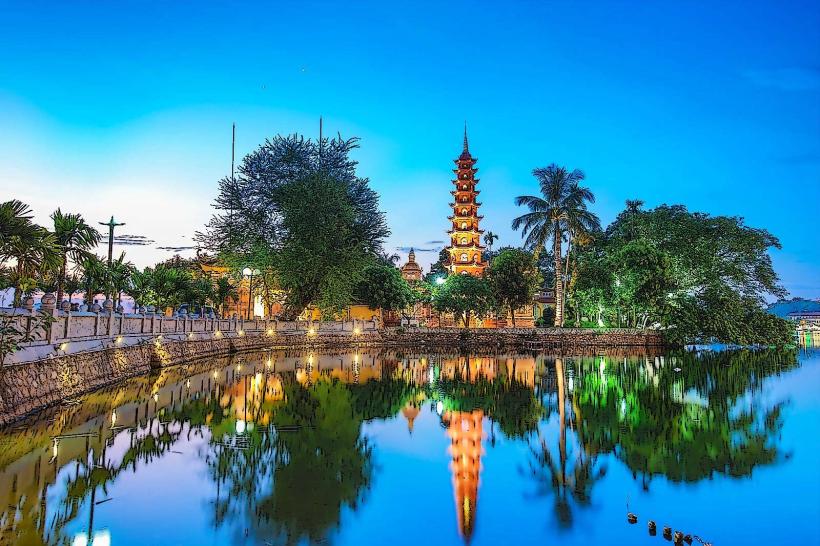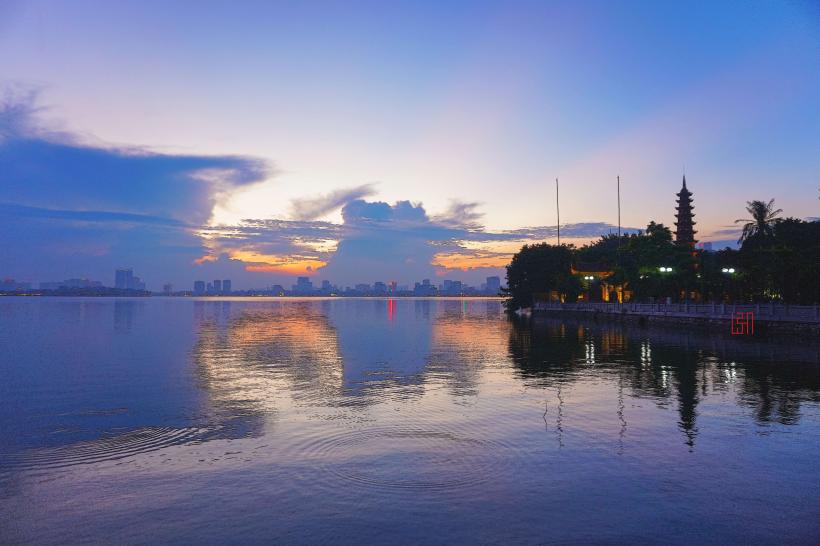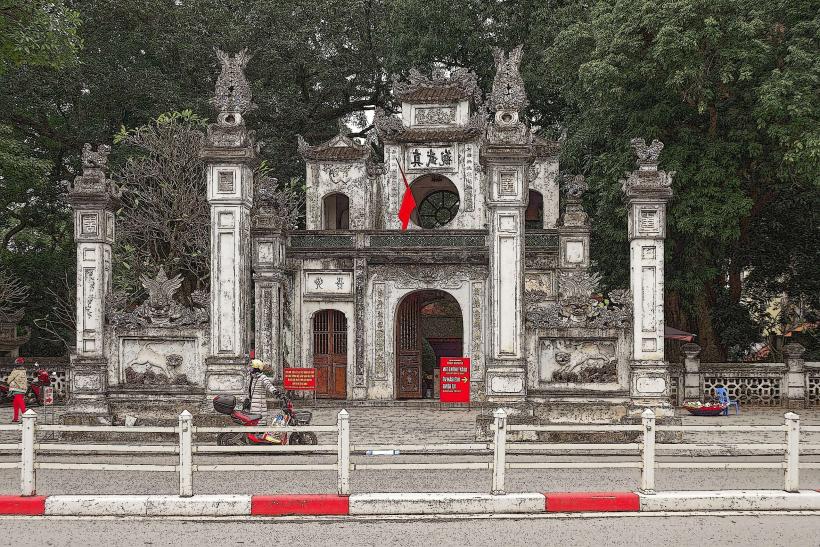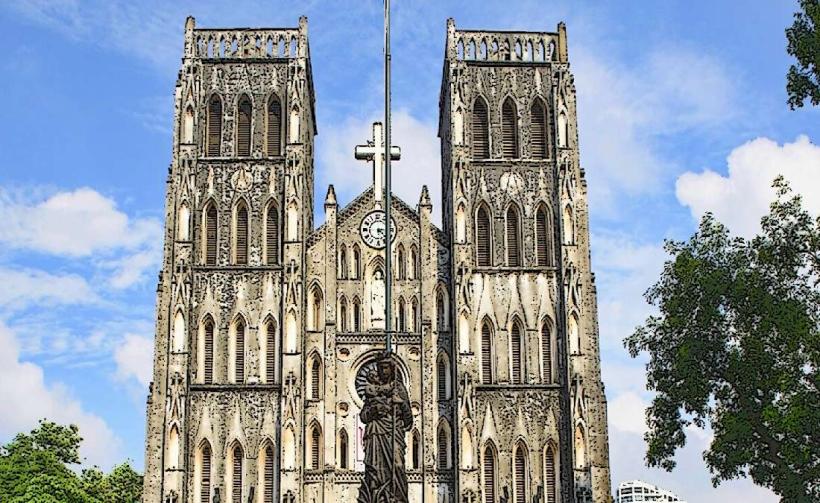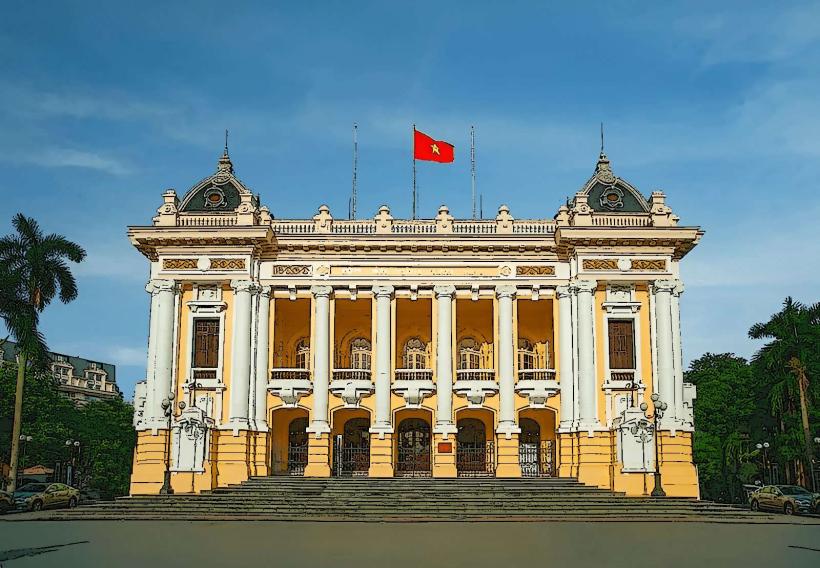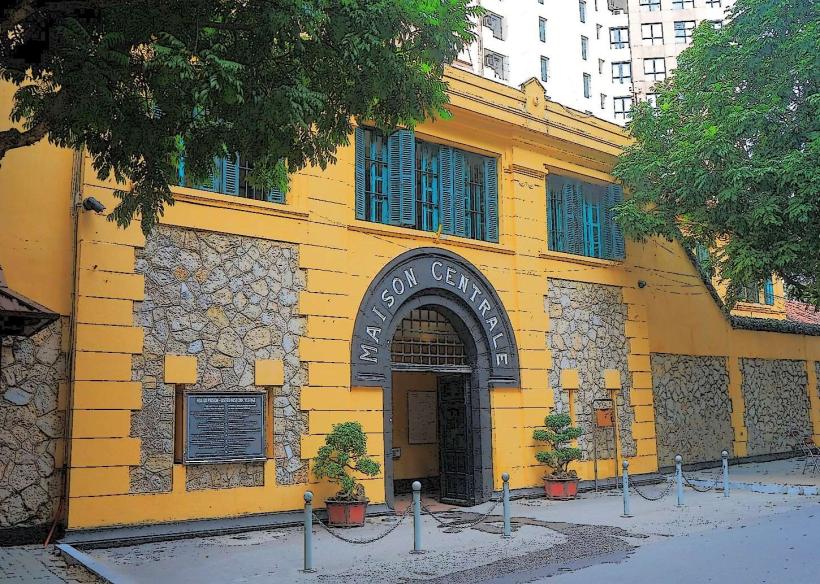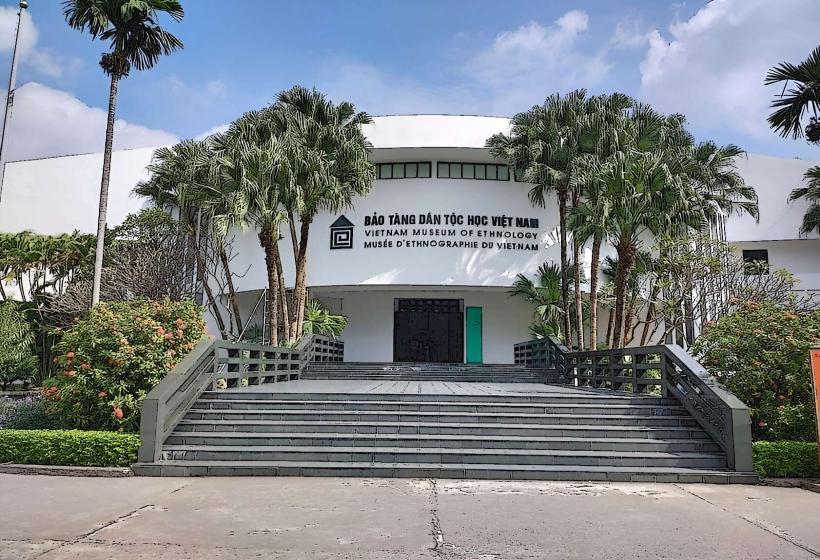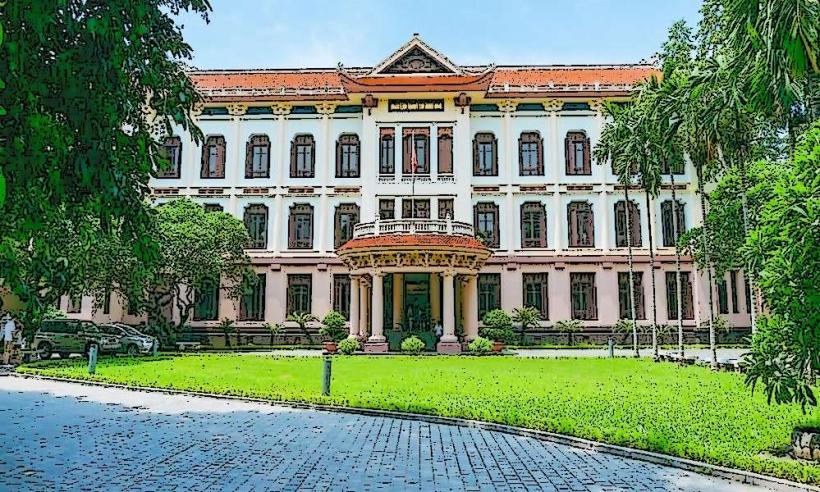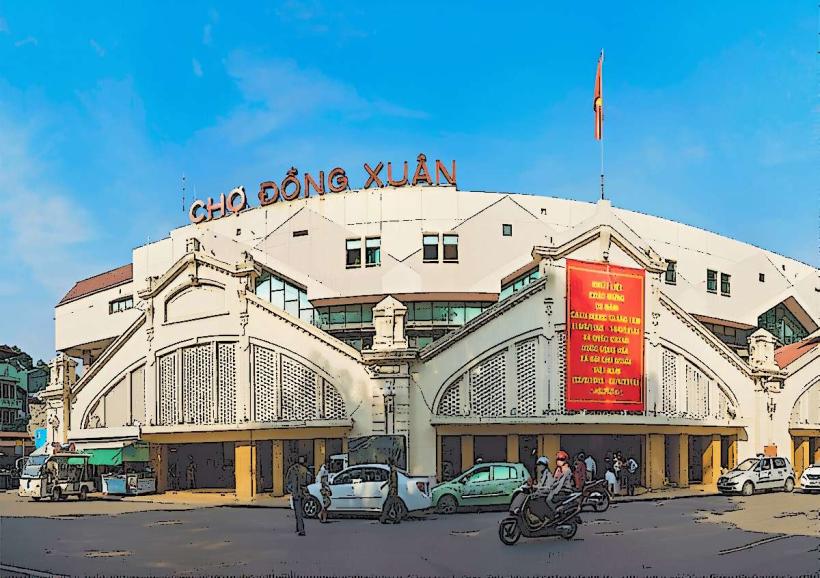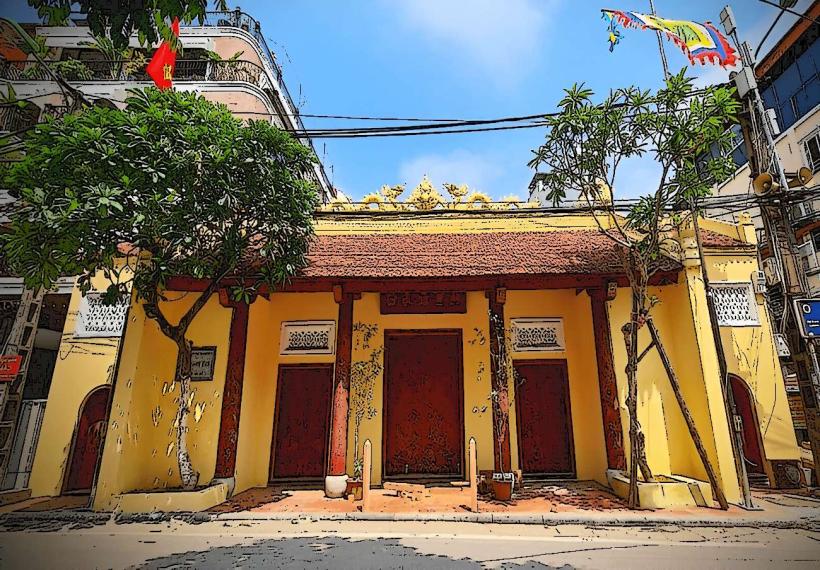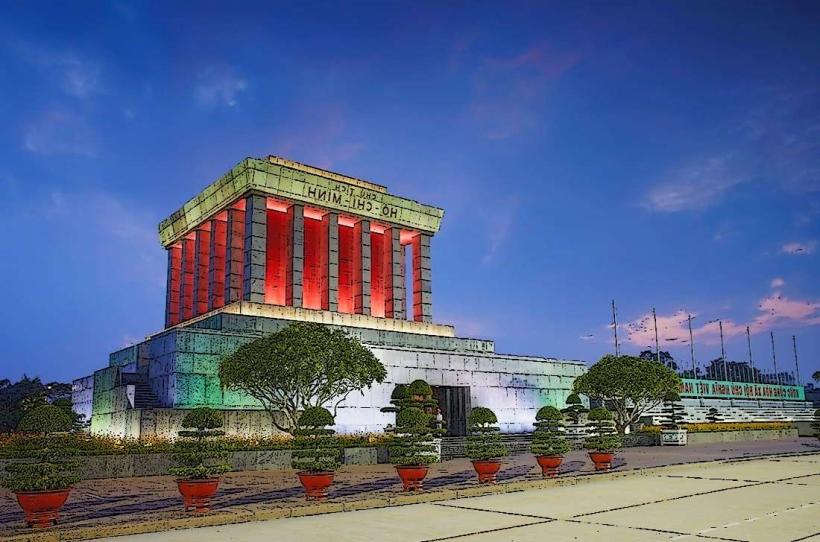Information
Landmark: Ngoc Son TempleCity: Hanoi
Country: Vietnam
Continent: Asia
Ngoc Son Temple, Hanoi, Vietnam, Asia
Ngoc Son Temple is a historic temple situated on a small island in Hoan Kiem Lake, within the city of Hanoi, Vietnam.
Visual Characteristics
The temple complex is accessed via the Huc Bridge, a red-lacquered wooden structure. The main temple building is constructed from brick and wood, featuring traditional Vietnamese architectural elements. It is painted in muted tones, with tiled roofs and decorative carvings. The island itself is landscaped with trees and pathways.
Location & Access Logistics
Ngoc Son Temple is located in the center of Hoan Kiem Lake, accessible from the eastern shore via the Huc Bridge. The entrance is at the intersection of Dinh Tien Hoang Street and Cau Go Street. Parking is available at designated lots along Dinh Tien Hoang Street. Public bus routes 08A, 08B, 11, 14, 18, 23, 36, 40, 45, 55, 86, 100, 146 stop within a 500-meter radius of the lake's edge.
Historical & Ecological Origin
The temple was constructed in the 13th century, dedicated to scholars and national heroes. It was rebuilt and renovated multiple times, with significant restoration occurring in the 19th century. The island is a natural formation within Hoan Kiem Lake, which itself is a freshwater lake in the city center.
Key Highlights & Activities
Visitors can cross the Huc Bridge to enter the temple grounds. Inside, the temple houses altars and historical artifacts. A notable feature is the preserved specimen of a large turtle, historically associated with the lake's legend. Walking the grounds and observing the architecture are primary activities.
Infrastructure & Amenities
Restrooms are available on the island. Shade is provided by trees and the temple structures. Cell phone signal (4G/5G) is generally strong within the temple complex. Food vendors and small shops are located along the perimeter of Hoan Kiem Lake, adjacent to the temple access point.
Best Time to Visit
For optimal lighting for photography, early morning (7:00 AM - 9:00 AM) or late afternoon (4:00 PM - 6:00 PM) is recommended. The temple is open year-round. Weather is most pleasant during the autumn months (September to November) and spring months (March to April).
Facts & Legends
A prominent legend associated with Hoan Kiem Lake and Ngoc Son Temple involves Emperor Le Loi returning a magical sword to a Golden Turtle God. The preserved turtle specimen on display is said to be that very turtle.
Nearby Landmarks
- Hoan Kiem Lake (0km)
- Turtle Tower (Thap Rua) (0.2km West)
- Hanoi Old Quarter (0.5km North)
- St. Joseph's Cathedral (1.2km Southwest)
- Vietnam Military History Museum (1.5km Northwest)

